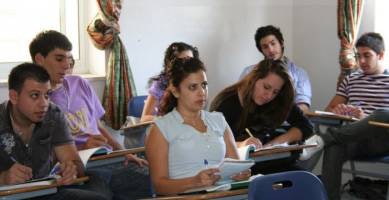A new report from a bipartisan task force concludes that “education is key” to helping bring stability to Syria, Iraq and other troubled nations, many of who’s most promising young people have fled.

Co-chaired by Madeleine Albright, secretary of state under Democratic President Bill Clinton, and Republican President George W. Bush’s national security adviser Stephen Hadley, the task force was convened by the Atlantic Council, a nonpartisan organization that promotes U.S. leadership in international affairs.
It warns that the incoming Trump administration will have to deal almost immediately with the Syrian crisis, and should do so with a strategy that encompasses multilateral actions including the strengthening of opposition forces.
But the report says the approach must also include “unlock[ing] the region’s untapped human capital,” especially among young people and women.
One of the least-noticed effects of the wars in Syria, Iraq and elsewhere is that they have interrupted the higher educations of huge numbers of students, including the many who have fled. Barely 1 percent of college-age refugees are in university courses, compared to the global average of 34 percent, the Institute of International Education, or IIE, estimates.
In Syria alone, which 4.8 million people have now left, an estimated 210,000 students were enrolled in college when the civil war began. Only 1.4 percent of worldwide humanitarian aid goes to education of any kind, according to the United Nations Educational, Scientific, and Cultural Organization, or UNESCO.














